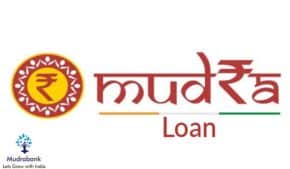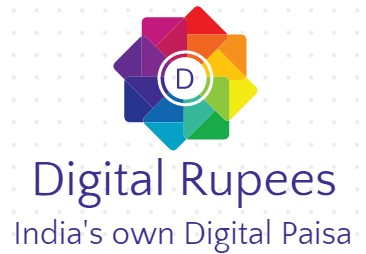Business Loan from Mudra Bank

Page Contents
SME Business Loan from Mudra Bank: Your Complete Guide to Funding Your Dreams
In the dynamic landscape of entrepreneurship, small and medium-sized enterprises (SMEs) are the backbone of the economy. However, a constant challenge for these businesses is securing adequate and timely funding to fuel their growth. Traditional business loans often come with stringent requirements, high-interest rates, and the need for substantial collateral, making them inaccessible for many aspiring and existing entrepreneurs.
This is where the Pradhan Mantri Mudra Yojana (PMMY), or the Mudra Bank loan scheme, emerges as a game-changer. Launched by the Government of India, this flagship scheme is designed to provide financial support to micro and small enterprises, especially those that have historically been excluded from the formal banking system. If you are an SME owner or an aspiring entrepreneur, understanding the nuances of an SME business loan from Mudra Bank can be the key to unlocking your business’s true potential.
This comprehensive guide will walk you through everything you need to know about the Mudra loan scheme—from its core objectives and benefits to the application process, required documents, and eligibility criteria.
What is a Mudra Loan? A Pillar of Support for Micro and Small Businesses
The term “Mudra” stands for Micro Units Development & Refinance Agency Ltd. It is a financial institution set up by the Government of India to “fund the unfunded.” The Pradhan Mantri Mudra Yojana (PMMY) aims to provide collateral-free loans to the non-corporate, non-farm small and micro-enterprises. These loans are extended by various Member Lending Institutions (MLIs), including public and private sector banks, Regional Rural Banks (RRBs), and Non-Banking Financial Companies (NBFCs).
The core philosophy of the Mudra loan is to promote financial inclusion and support a wide range of income-generating activities in the manufacturing, trading, and services sectors. This includes a vast spectrum of businesses, from a small-scale manufacturing unit and a local shopkeeper to a fruit vendor and an artisan. The scheme is a powerful tool to foster self-employment and create jobs at the grassroots level.
Why Choose a Mudra Loan for Your SME? The Top Benefits
The Mudra loan scheme is popular among small business owners for several compelling reasons. Its unique features and government backing make it a highly attractive and practical financing option.
Collateral-Free Loans: This is one of the most significant benefits. Mudra loans are largely unsecured, meaning you don’t need to pledge any personal or business assets as security. This removes a major barrier for new and small-scale entrepreneurs who may not have valuable assets to offer.
Affordable Interest Rates: The interest rates for Mudra loans are reasonable and are determined by the lending institution based on the applicant’s profile and credit history. This affordability helps to reduce the financial burden on the business, allowing for better cash flow management.
No Processing Fees: In most cases, there are no processing fees for Mudra loan applications, especially for the lower-value Shishu category. This makes the loan more cost-effective from the outset.
Simplified Application and Fast Processing: The application process is designed to be streamlined and hassle-free, with minimal documentation required. This often leads to a quicker loan approval and disbursal time compared to traditional business loans.
Flexible Repayment Tenure: The repayment period for a Mudra loan can be extended for up to five years, providing flexibility and easing the monthly EMI burden on the business.
Empowering Various Business Sectors: The scheme supports a diverse range of non-farm activities, including manufacturing, trading, and services. It is particularly inclusive, with a significant percentage of loans sanctioned to women entrepreneurs and applicants from Scheduled Castes, Scheduled Tribes, and Other Backward Classes.
The Three Pillars of Mudra: Shishu, Kishor, and Tarun
To cater to the varying financial needs of businesses at different stages of their life cycle, the PMMY scheme categorizes loans into three distinct products. Understanding these categories is crucial to choosing the right loan amount for your business.
Shishu (Up to ₹50,000): This category is designed for businesses that are just starting out or are in their nascent stages. It is the perfect option for new entrepreneurs who need a small amount of seed capital to kickstart their venture, purchase basic equipment, or manage initial operational costs. The Shishu loan has the simplest eligibility criteria and requires minimal documentation, making it highly accessible.
Kishor (₹50,001 to ₹5 Lakhs): The Kishor category is for businesses that are already established and have a stable operational history. This loan is suitable for entrepreneurs looking to expand their operations, purchase additional machinery, or invest in working capital to meet growing demand. The application for a Kishor loan may require some proof of business existence and past financial records.
Tarun (₹5 Lakhs to ₹10 Lakhs): The Tarun loan is aimed at well-established businesses that require a larger amount of capital for significant expansion, technological upgrades, or diversification of their business. This category is for enterprises with a proven track record and a solid business plan for scaling up. As the loan amount is higher, a more comprehensive set of documents and financial statements may be required.
Eligibility Criteria for an SME Business Loan from Mudra Bank
To apply for a Mudra loan, you must meet certain eligibility requirements. While these may vary slightly among lending institutions, the core criteria remain consistent.
Citizenship: The applicant must be an Indian citizen.
Business Type: The loan is available to non-corporate, non-farm small and micro-enterprises. This includes individuals, proprietary concerns, partnership firms, and other legal entities engaged in manufacturing, trading, or services.
Income Generating Activity: The loan must be used for an income-generating business activity.
No Prior Defaults: The applicant must not have any prior default on a loan with any bank or financial institution. A satisfactory credit track record is essential.
Age: The minimum age for the applicant is 18 years, and the maximum is 65 years.
Mudra Loan for New vs. Existing Businesses
One of the scheme’s major advantages is that it caters to both new and existing businesses.
For New Businesses (Startups): The Shishu loan is the primary choice for startups. It’s designed to provide the necessary seed funding for new ventures with a viable business idea. The focus is on the project’s feasibility rather than a long financial history.
For Existing Businesses: Both the Kishor and Tarun loans are ideal for existing businesses that need capital for expansion, upgrading equipment, or increasing their working capital. The application process for these categories will involve a review of the business’s financial history and performance.
Step-by-Step Application Process for Your Mudra Loan
Applying for a Mudra loan is a straightforward process. You can apply either offline by visiting a branch or online through the respective bank’s portal or government platforms.
Offline Application:
Select a Lending Institution: Identify a bank, MFI, or NBFC that is an authorized Mudra Bank partner.
Download the Application Form: Obtain the Mudra loan application form from the bank’s official website or a branch.
Fill the Form: Accurately fill out the application form with all the required personal and business details.
Gather Documents: Prepare all the necessary documents (listed in the next section).
Submit the Application: Submit the completed form along with the documents at the bank branch. The bank representative will verify the details and guide you through the next steps.
Online Application:
Visit the Official Portal: Access the official online portal like the JanSamarth or Udyamimitra portal, which are dedicated platforms for Mudra loan applications. You can also check if your preferred bank offers a direct online application for Mudra loans.
Register and Log In: Create an account on the portal and log in.
Fill the Application Form: Complete the digital application form. This will involve providing details about your business, personal information, and the loan amount required.
Upload Documents: Scan and upload all the necessary documents.
Submit and Track: Submit the application and you will receive a reference ID. You can use this ID to track the status of your application online. A bank representative will contact you to proceed with the verification and disbursal process.
Essential Documents Required for a Mudra Loan
The documentation required depends on the loan category (Shishu, Kishor, or Tarun) and the lender, but a general checklist includes:
Duly filled and signed Mudra loan application form.
Passport-sized photographs of the applicant.
Proof of Identity: Aadhaar Card, PAN Card, Voter’s ID Card, Passport, or Driving License.
Proof of Address: Aadhaar Card, Voter’s ID Card, Utility Bills (water/electricity), or Passport.
Proof of Business: Business establishment documents, such as registration certificate, licenses, or any other proof of business existence and address.
Bank Statements: Last 6 to 12 months’ bank statements for both personal and business accounts.
Income Proof: For Kishore and Tarun loans, you may need to submit financial statements like Income Tax Returns (ITR) for the past 2-3 years, and a projected turnover or business plan.
Quotation for Machinery/Items: If the loan is for purchasing specific equipment, a quotation from the supplier may be required.
Interest Rates and Repayment Period
Interest Rates: Mudra loan interest rates are not fixed and vary from one lending institution to another. They are generally competitive and based on the MCLR (Marginal Cost of Funds based Lending Rate) set by the Reserve Bank of India, in addition to the bank’s own lending policies and the applicant’s credit profile.
Repayment Tenure: The repayment period can be flexible, with a maximum tenure of up to 5 years. This allows entrepreneurs to manage their finances comfortably and repay the loan without undue stress.
Success Stories and the Impact of Mudra Bank
The Mudra scheme has been instrumental in transforming millions of lives across India. Countless stories of street vendors, home-based artisans, and small business owners who used a Mudra loan to expand their operations, purchase new machinery, and create jobs are a testament to the scheme’s success. It has not only provided financial assistance but has also instilled a sense of confidence and self-reliance among a new generation of entrepreneurs.
Conclusion: Your Gateway to Growth
The SME business loan from Mudra Bank is more than just a financial product; it’s a powerful government initiative designed to empower micro and small businesses. By offering collateral-free loans, affordable interest rates, and a simplified application process, it has leveled the playing field for countless entrepreneurs.
If you are an SME owner looking to expand, a startup with a brilliant idea, or a professional looking to venture into self-employment, a Mudra loan could be the perfect solution. Evaluate your business needs, understand the three categories (Shishu, Kishor, Tarun), prepare your documents, and take the first step towards securing the funding you need to turn your entrepreneurial dreams into a successful reality.
Is the Mudra loan available now?
Yes, the Mudra loan is available now for commercial activity only. You can apply for a mudra loan online via emudra loan and offline via any bank branch.
Can I get a mudra loan for a new business?
Mudra Yojana is a loan scheme initiated by the Government of India to offer loan amounts up to Rs. 20 lakh for individuals and MSMEs to start their new business or for existing businesses, without submitting any collateral or security.
What kind of business can I start with a mudra loan?
Transport Vehicle.
Community, Social & Personal Service Activities.
Food Products Sector.
Textile Products Sector / Activity.
Business loans for Traders and Shopkeepers.
Equipment Finance Scheme for Micro Units & many more….




